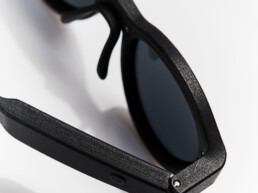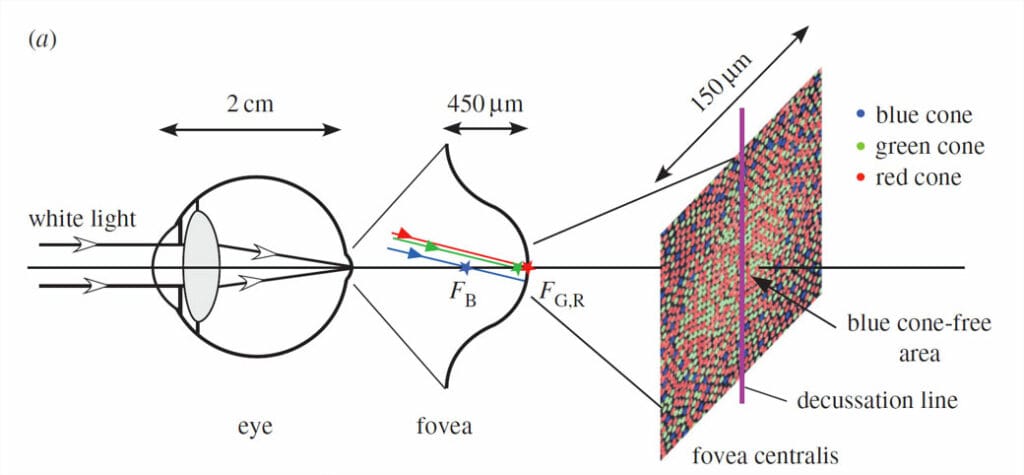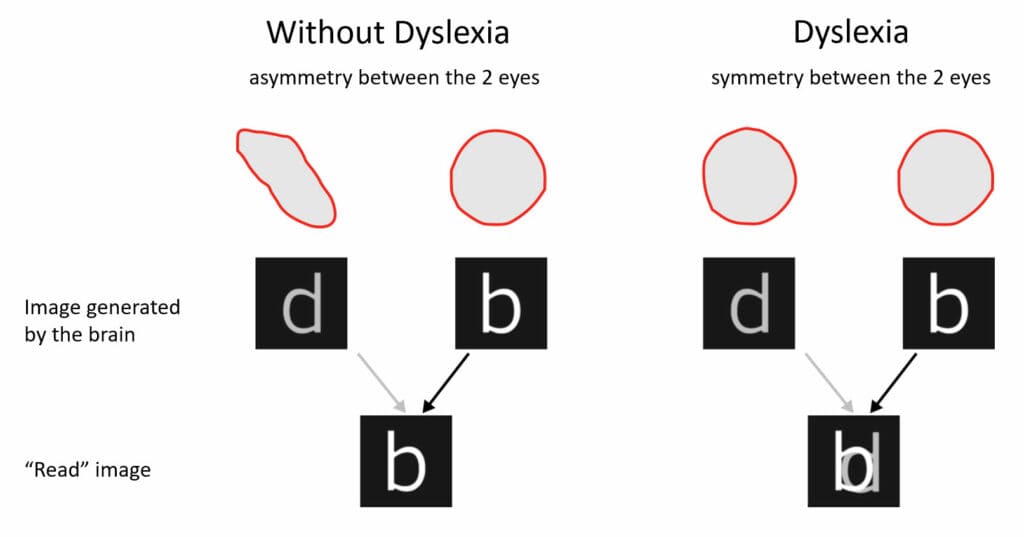Dyslexia
Dyslexia is a reading disorder affecting around 10% of world population. Dyslexia makes the reading difficult and can have a significant impact during education, in the workplace and in everyday life. Symptoms can vary from mild to severe, it usually runs in families and is a life-long condition; no cure to dyslexia is known to date.
Research indicates that dyslexia has no relationship to intelligence. Individuals with dyslexia are neither more nor less intelligent than the general population.

The discovery in short
We always think of the eye for its optical properties : making the light beams focus so we can “see” clear images.
The eye anatomy plays another important role beyond optics though : its wiring impacts the processing of images in the brain. The Maxwell centroid spot is a small region of the retina of the eye and is the area with the highest “pixel density” which we use when doing activities requiring high accuracy such as reading.
These centroids, more specifically the absence of symetry between the two centroids, enables the brain to select the “right” images before it is sent to the reading area (located in the left half brain).
Researchers discovered that when the centroids are too symmetrical, they downgrade the ability of the brain to select the right images Individuals with dyslexia have eyes that are too symmetrical, too perfect in some way, and this leads to their reading area trying to process superimposed images, an explanation for dyslexia.
How does Lexilens® work?
Lexilens® looks like an ordinary eyewear with embedded electronics and battery. These control the active filters that enable a smoother reading with less effort.
Lexilens® filters out the parasite images and instantly makes the reading easier.
While doing so, the cognitive load once allocated to deciphering is now allocated back to comprehension. All Lexilens users confirm : text appears more clear and is instantly meaningful. This enables them to not only read with less effort but also to memorize better with strong impact on reading performance and overall self confidence.

An Academic Research studies
In 2017, an academic research paper suggested a cause for dyslexia and a way to counter it.
Abeye research team collaborated with the academic team for 3 years to pursue R&D and design a device that would embed this latest research discovery to help individuals with dyslexia overcome their disorder.


